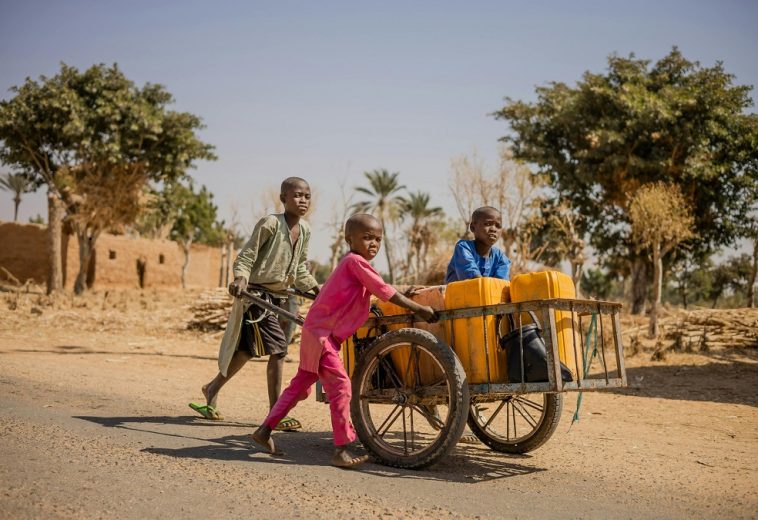Long overshadowed by global narratives about its energy deficits, Africa is now positioning itself as a leader in the clean energy space. This transformation is not only essential for meeting the continent’s growing energy demand but also a powerful tool for economic development, sustainability, and global energy leadership. With cutting-edge technology, strategic investment, and an embrace of renewable energy solutions, Africa is shaping its future and rewriting the global energy map.
Solar Power: Africa’s Renewable Goldmine
Solar power is undoubtedly one of Africa’s greatest assets. The continent receives more than 300 days of sunlight per year in many regions, making it the perfect candidate for solar energy innovation. Africa has already begun to harness this abundance in impressive ways. Morocco’s Noor Ouarzazate Solar Complex — the largest solar plant of its kind — produces over 580 MW of power, enough to light up an entire city, and is only one of the many solar projects that reflect the continent’s solar potential.
READ ALSO: Renewable Energy: Uganda’s Ambitions for Hydro Capacity Expansion
Another remarkable example is M-KOPA, a pay-as-you-go solar technology platform that has connected over 1.3 million homes in East Africa to solar-powered electricity. The company’s affordable solutions have drastically reduced reliance on costly and environmentally damaging kerosene lamps, helping lift many families out of energy poverty.
The rapidly expanding off-grid solar sector is also pivotal. By bypassing traditional grid infrastructure, off-grid solutions are providing immediate relief to millions in rural and remote areas, helping to bridge the energy access gap. According to IRENA, Africa’s solar capacity is expected to grow exponentially, potentially generating over 50% of the continent’s total energy by 2030.
Green Hydrogen: Africa’s Clean Energy Export
Green hydrogen is gaining global attention as a clean fuel for the future, and Africa is ideally positioned to lead this shift. South Africa, Egypt, and Namibia are already exploring green hydrogen projects that could transform them into global hydrogen suppliers, capitalising on the continent’s abundant solar and wind resources. McKinsey reports that by 2050, green hydrogen could reduce Africa’s energy carbon intensity by 45%.
The African Union has identified green hydrogen as a key strategy for sustainable development. South Africa, in particular, is investing heavily in hydrogen technology. With a large-scale project supported by international investors, the country is set to become a leader in green hydrogen, facilitating export opportunities to countries like Germany and Japan that are looking to decarbonise their industries. This green hydrogen potential could also create thousands of jobs and stimulate local economies, turning energy poverty into an opportunity for growth.
Wind Power: Strengthening the Energy Mix
Wind energy is another critical pillar of Africa’s energy future. Kenya’s Lake Turkana Wind Power Project is a shining example of how wind can supplement solar and hydropower. With a capacity of 310 MW, the project provides approximately 17% of Kenya’s total electricity needs, a massive contribution to the country’s energy stability. In South Africa, wind power is complementing the country’s solar resources, helping to diversify the energy mix and create a more resilient power grid.
Africa’s wind energy potential is immense. According to IRENA, the continent could produce up to 1100 GW from wind energy alone, helping to meet local demand and position Africa as an exporter of wind power. This is a prime example of how renewable resources can help Africa leapfrog traditional fossil fuels and directly enter the clean energy era.
Digital and Smart Technologies: Powering Africa’s Energy Revolution
Digital transformation plays a critical role in Africa’s energy future. Smart grid technologies and blockchain are helping to optimise energy distribution, reduce energy loss, and empower local communities. Smart grids are already in use in countries like Morocco, where they enable more efficient management of electricity. These grids ensure that power generated from renewable sources is seamlessly integrated into the national grid, supporting Africa’s transition to renewable energy.
Blockchain technology is also creating a more decentralised and transparent energy market. By enabling peer-to-peer energy trading, African households and businesses can sell excess solar energy to their neighbours, ensuring that power is distributed where it is most needed and reducing waste
IRENA
. These innovations not only provide energy security but also support the growth of local economies by creating digital platforms for energy management and trade.
Investment: Fueling Africa’s Energy Transformation
As Africa’s energy landscape evolves, substantial investment is required to bring these technologies to scale. McKinsey estimates that Africa will need $2.9 trillion in capital expenditure between 2022 and 2050 to meet its renewable energy goals. The African Development Bank (AfDB) has recognised this need and is actively supporting renewable energy initiatives through its Africa Renewable Energy Initiative (AREI). This initiative aims to add 300 GW of renewable energy to the grid by 2030, significantly boosting the continent’s energy capacity and providing sustainable development opportunities.
International investors are also increasingly eyeing Africa’s renewable energy sector. The African continent’s ability to leverage its renewable resources, combined with its young and growing population, offers tremendous potential for economic growth, job creation, and energy export opportunities. The influx of capital is not only driving the development of large-scale projects but is also empowering local entrepreneurs and communities to build their own clean energy solutions.
Africa’s Energy Future: A Path to Global Leadership
Africa’s energy transformation is nothing short of revolutionary. The continent is tapping into its vast renewable resources — solar, wind, hydro, and green hydrogen — and leveraging cutting-edge digital technologies to drive its energy future. As these innovations continue to scale, Africa is set to become a global leader in sustainable energy, offering the world a model for clean, inclusive, and resilient energy systems.
Moreover, the rise of renewable energy technologies is positioning Africa to overcome its historical energy challenges, creating an energy future that not only meets the needs of the continent’s people but contributes meaningfully to global climate action. Africa’s energy revolution is a triumph of innovation, resilience, and opportunity, demonstrating that the future of energy is African.
In this new era, Africa is not just a recipient of energy solutions but a powerful provider, forging its path as a leader in the global clean energy market. With the right investments, policies, and technologies in place, Africa’s energy future is bright, green, and filled with opportunity for all.




